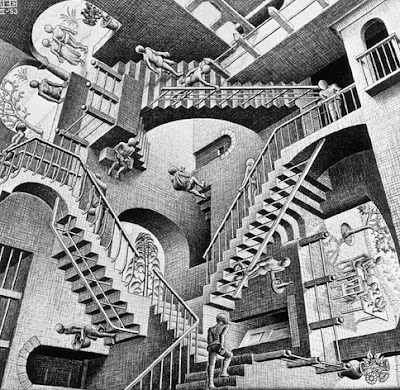The context…
‘Zen and the art of
Motorcycle maintenance’ (ZAMM) is the largest selling philosophical
novel ever. It is listed in the Guinness book of world records as the bestselling book that faced the highest number of rejections (121) before finally finding a willing publisher. It is a window into the
mind of a remarkable man (author Robert Pirsig) whose obsession with the
‘grand truths’ of life took him to the verge of self-destruction and
even beyond it (he was institutionalized for Insanity and forcibly put
through electroconvulsive shock therapy). He is a defining example
of a genius (he was tested to have an IQ of 170, a 1-in-50000 result) as
traditionally conceived – coruscating and inspirational but tortured
and solipsistic.
The book itself…
The book itself…
is essentially an exposition of a new philosophical
thesis that is put forth embodied in a series of meditative reflections
interspersing the course of a motorcycle journey through northwestern
United States.
The narrator has his son Chris for a pillion during the entire journey; it must be said that a certain poignant tension continually attends their relationship which progressively reveals itself in the course of events.
The narrator has his son Chris for a pillion during the entire journey; it must be said that a certain poignant tension continually attends their relationship which progressively reveals itself in the course of events.
 |
Pirsig and his son on the roadtrip described in the book (Actual photograph)
|
Then of course there is
the constant companion, the motorcycle, which the narrator recurrently
employs (as a readily accessible epistemological and ethical object) in
his annotations to ‘concretize’ the many otherwise often abstract
themes.
There are a host of other characters, none of whom occupy the Mise-en-scène throughout,
but all of them serve as exemplars of a more general ‘type’ and help in
anatomizing, for the reader, the many varied perspectives that stood
considered by the author en route to his grand thesis.




